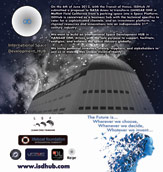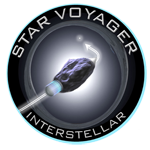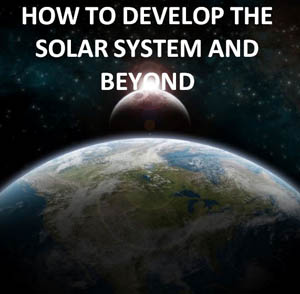- Cathy W. Swan
Cathy W. Swan
Cathy W. Swan is the President of SouthWest Analytic Network Inc, she is the author of over three dozen books and articles on space policy; and, over two dozen books and articles on arms control treaty implementation. She earned her PhD in Strategy and Policy at the University of California, LA. Since then she has acted as the Director of the Center for Arms Control and Technology Assessment, at Eos Technologies Inc., as the Deputy for Policy, Office of Special Projects, Office of the Secretary of the Air Force, and as an Assistant Professor in the Departments of Astronautics and Economics, Geography and Management at the United States Air Force Academy. She is currently the President and CEO of Southwest Analytic Network, and a Fellow at the International Academy of Astronautics, the International Institute for Strategic Studies, and the British Interplanetary Society.
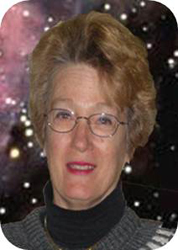
- David Brin
David Brin
David Brin is a scientist, inventor, and New York Times bestselling author. With books translated into 25 languages, he has won multiple Hugo, Nebula, and other awards. A film directed by Kevin Costner was based on David’s novel The Postman. Other works have been optioned by Paramount and Warner Bros. As a scientist/futurist, David is seen frequently on television shows such as The ArchiTechs, Universe, and Life After People, with many appearances on PBS, BBC and NPR. An inventor with many patents, he is in-demand to speak about future trends, keynoting for IBM, Google, Procter & Gamble, and a host of other public and private organizations. With degrees from Caltech and the University of California-San Diego, Dr. Brin serves on advisory panels ranging from astronomy, NASA innovative concepts, nanotech, and SETI to national defense and technological ethics. His nonfiction book The Transparent Society garnered the prestigious Freedom of Speech Prize from the American Library Association.
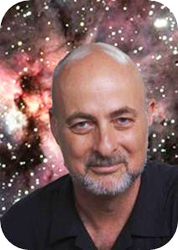
- Dirk Schulze-Makuch
Dirk Schulze-Makuch
Dirk Schulze-Makuch is Professor at Washington State University. He obtained his Ph.D. from the University of Wisconsin-Milwaukee in 1996. Afterwards he worked as a Senior Project Hydrogeologist at Envirogen, Inc. and took in 1998 a faculty position at the University of Texas at El Paso. During that time he was also a summer faculty fellow at Goddard Space Flight Center. Since 2004 Dr. Schulze-Makuch is a faculty member at Washington State University. His interests are in astrobiology, planetary science and space flight, microbiology, and evolutionary and cancer biology. He has published five books and more than 100 scientific articles in these fields.
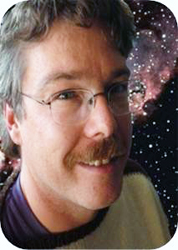
- Edward Guinan
Edward Guinan
Edward Guinan, Ph.D., is a Professor of Astronomy and Astrophysics at Villanova University. He and two colleagues discovered Neptune’s ring system in 1968. His research interests include binary star systems, pulsating stars, black holes, evolution of the Sun and solar-like stars, pulsating stars, exoplanets and the suitability of exoplanets for life. He is a Guest Investigator on number of NASA Astronomy space observatories including the Hubble Space Telescope, Spitzer Space Telescope, Chandra X-ray Observatory, XMM-Newton X-ray Telescope and Kepler Planet Quest Mission. Guinan has published over 500 science papers and edited four books. He is also the Chair of the Teaching Astronomy for Development (TAD) program of the International Astronomical Union (IAU) which sponsors education, research and outreach programs in developing counties. He also has served on numerous NASA and NSF Peer Review and Advisory Panels and currently serves on the Council of the American Astronomical Society (AAS) and is the Chair of the US National Committee of the National Academy of Sciences for Astronomy.
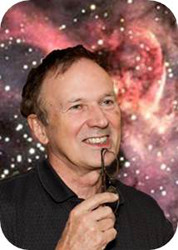
- Joe Miller
Joe Miller
Joe Miller received his Ph.D. in 1979 from the University of Texas, did a postdoc in dopamine electrophysiology at UT Southwestern until 1982, followed by a second postdoc in circadian neurobiology at UC Riverside and UC Davis until 1987. From 1982-1987 he also served as a NASA space shuttle project director. Dr. Miller was a research associate in the Stanford Biology Department from 1987-1994 and the Director of Neurochemistry in the Stanford-Upjohn Center for the Study of Sleep and Circadian Rhythms. He was a faculty member in the Department of Pharmacology, Texas Tech Health Sciences Center from 1994 until 2000. From 2000 to present he has been an associate professor in the Department of Cell and Neurobiology at the Keck School of Medicine at USC.
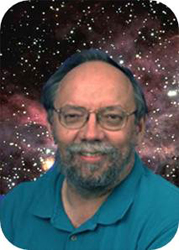
- Jose Cordeiro
Jose Cordeiro
Jose Cordeiro is chair of the Venezuelan Node of the Millennium Project, Visiting Research Fellow at the Institute of Developing Economies (IDE – JETRO) in Tokyo, Japan, and Energy Advisor and Faculty at Singularity University (SU) in NASA Ames, Silicon Valley, USA. He studied at the Massachusetts Institute of Technology (MIT) in Cambridge, USA, where he received his Bachelor and Master of Science (M.Sc.) degrees in Mechanical Engineering. His thesis consisted of a dynamic modeling for NASA’s “Freedom” Space Station (the “International” Space Station of today). He later obtained his Masters of Business Administration (MBA) at the Institut Européen d’Administration des Affaires (INSEAD) in Fontainebleau, France, where he majored in Finance and Globalization. He started his doctoral work at MIT, which he continued later in Tokyo, Japan, and finally received his PhD at Universidad Simón Bolívar (USB) in Caracas, Venezuela. He has acted as a consultant for the world’s major oil companies as well as a number of governments.
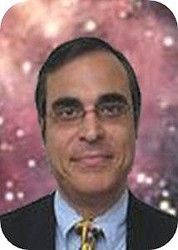
- Peter A. Swan
Peter A. Swan
Peter A. Swan is the Vice-President of International Space Elevator Consortium, and a Professor Emeritus at Teaching Science and Technology, Inc., and Industry Professor at Stevens Institute of Technology and Technical University of Delft. He is also Chief Engineer at SouthWest Analytic Network, Inc. He is a past member of the Army Scientific Board. He is also a Fellow of the American Institute of Aeronautics and Astronautics, a Fellow of the British Interplanetary Society, and a member of a number of other scientific, professional, and honorary societies. He holds a number of patents and is the author of numerous publications including books and articles.
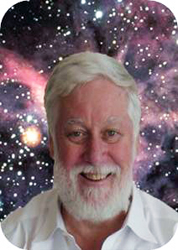
- Richard K. Obousy
Richard K. Obousy
Richard K. Obousy (Ph.D (Physics) Baylor University 2008), is currently President and Primary Propulsion Senior Scientist for Icarus Interstellar, a non-profit research foundation dedicated to researching technologies that will enable breakthroughs in interstellar travel. Icarus Interstellar was one of the three organizations that came together to successfully win the DARPA 100 Year Starship award. He is also Subject Editor and a Member of the Advisory Board for the Journal of the British Interplanetary Society and a regular guest contributor for Discovery Space News. Dr. Obousy completed his Ph.D in theoretical physics in 2008, with a dissertation titled “Investigation into Compactified Dimensions: Casimir Energies and Phenomenological Aspects“, which was largely focused on understanding the nature of the vacuum of quantum field theory. Prior to studying for his Ph.D, Dr. Obousy worked for the UK Defense Evaluation and Research Agency (DERA) as a radar physicist. He was recently a chapter contributor for the book “Going Interstellar”, edited by Jack McDevitt and Les Johnson (Deputy Manager for the Advanced Concepts Office at NASA George C. Marshall Space Flight Center).
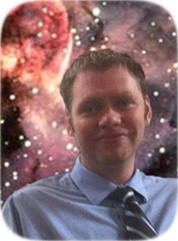
- Robert L. Frantz
Robert L. Frantz
Robert L. Frantz has completed multiple careers. He served in the United States Marine Corps for 20 years where he served as a fighter pilot. Following this career, he flew as a commercial pilot for United Airlines and retired after 16 years as a Captain. In his third career he served as a university administrator and as a professor in business administration, specializing in distant education, both as a professor and as an online administrator. Currently he is the President, CEO, and Cofounder of Kepler Space University. He served for ten years on the board of the Distinguished Flying Cross Society (.org) where he held positions of President and COB. He is also the COB for Ashburn Institute (.org) and has promoted international integration through the organizations graduate level scholarship endowment. He holds a PhD in Earth and Space Science.
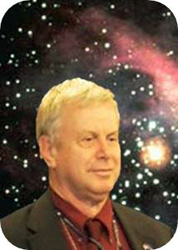
- Weilian Su
Weilian Su
Weilian Su is an Associate Professor at Naval Postgraduate School. He received his B.S. degree in Electrical, Computer, and Systems Engineering (ECSE) from Rensselaer Polytechnic Institute in 1997 with Summa Cum Laude and M.S.E.C.E and Ph.D degrees in Electrical and Computer Engineering from Georgia Institute of Technology in 2001 and 2004, respectively. He has published many papers in wireless and interplanetary networks and won the “2003 Best Tutorial Paper Award” from IEEE Communications Society. His past experience includes lunar image compression at Jet Propulsion Laboratory and chip design at IBM. Currently, he is a IEEE Senior Member and the President of the IEEE Monterey Bay Subsection. His current research interests are sensor networks, cyber security and interplanetary networks.

- LISTEN to The Space Show on the 21st of December 2012 at 9:30am -11:00 am PST www.thespaceshow.com
- We are working towards a peaceful, creative, and prosperous 21st century.
- Support our vision if you too would like to see humanity transcend scarcity and austerity,
- and embark on a galactic adventure that will inspire generations for centuries to come.
- LISTEN to The Space Show on the 21st of December 2012 at 9:30am -11:00 am PST www.thespaceshow.com

